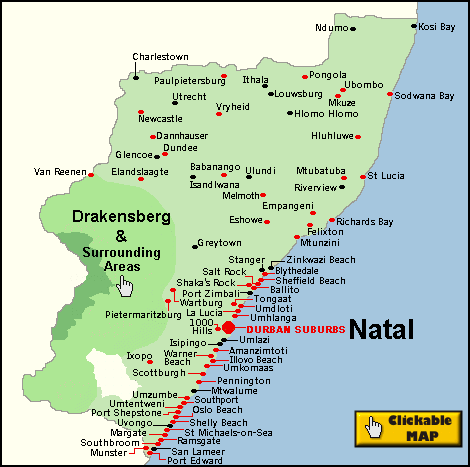In 1896, he returned to India and "gave newspaper interviews, made speeches, and wrote a pamphlet which was widely distributed. A summary of the pamphlet was sent to England by the press, and a summarized summary was cabled to Natal" (Feurlicht, 4). He reached Natal again in December with his wife and 2 children. Once he arrived at the dock, "about a half a dozen men joined in the shouting" (Gandhi, 185) being directed toward him after his defense of Indians in Natal. Soon, "they pelted [him] with stones, brickbats, and rotten eggs", but "the Police Superintendent...sent a posse of men to ring [him] around and escort [him] safely to [his] destination" (Gandhi, 186).
After a few years of working in law and helping the Natal Indians with their drive for liberty, "Gandhi decided that if he remained in South Africa he would simply become a prosperous attorney and so the time had come for him to go home to work for India. He left Natal promising that if the Indians needed him within a year he would come back. He was showered with costly jewels and ornaments as farewell gifts but he put them in a bank to be used as a trust fund to meet community needs" (Feuerlicht, 5). “In 1901 he returned to India” (Cheney, 33).
Once "back in India, Gandhi traveled a great deal and attended the annual meeting of the Indian National Congress" (Feuerlicht, 5). Soon "a cablegram came from South Africa."Chamberlain expected here," it said. "Please return immediately." Gandhi left his wife and children in Bombay and returned to South Africa to resume his crusade" (Feuerlicht, 5). The issue was that "in 1906, the Transvaal government promulgated a new Act compelling registration of the colony's Indian population. At a mass protest meeting held in Johannesburg on September 11th that year, Gandhi adopted his still evolving methodology of Satyagraha, or non-violent protest, for the first time, calling on his fellow Indians to defy the new law & suffer the punishments for doing so, rather than resist through violent means" (Biography of Gandhi, 1). This idea "was adopted--leading to a seven-year struggle in which thousands of Indians were jailed" (Mohandas Gandhi Biography, 1). Gandhi "was involved in a mass burning of registration documents, he was tried and he went to jail...he served two weeks of his sentence" (Yates, 1).
In further protest, "the Indians met in the Hamidia mosque in Johannesburg on August 16, 1908, and burned over two thousand registration certificates in a giant cauldron" (Feuerlicht 6). Gandhi and hundreds of others were arrested once again. However, "by 1909 this phase of the resistance had come to an end" (Chetty, 2). With many Indians in jail, "he searched for a home for his disciples when they were not in prison. His movement was generously financed by wealthy Indians, but one of the most faithful of his followers was a German industrialist named Hermann Kallenbach" (Feuerlicht, 6). "Kallenbach bought a piece of land from Town Councillor Partridge, and officially placed it on May 30, 1910, at the disposal of the satyagrahis as long as the campaign lasted" (Bhana, 1). "In 1910," Gandhi "founded Tolstoy Farm, near Johannesburg, a cooperative colony for Indians" (Mohandas Gandhi, 1) out of Kallenbach's land. Everyone from "men, women, and children, Hindus, Moslems, Christians, and Jews, lived at the farm with equal rights and equal responsibilities. Smoking and liquor were banned, and the few meat-eaters voluntarily became vegetarians" (Feuerlicht, 6).
Many riots, marches, and terms in jail followed. "It took seven years of protest, but in June 1914, the Black Act was repealed. Gandhi had proved that nonviolent protest could be immensely successful" (Rosenberg, 2). Elated, "the Indians in South Africa wanted Gandhi to stay until all their demands were met, but Gandhi felt he had done all he could. After twenty years in South Africa it was time to return to India" (Feuerlicht, 7).

